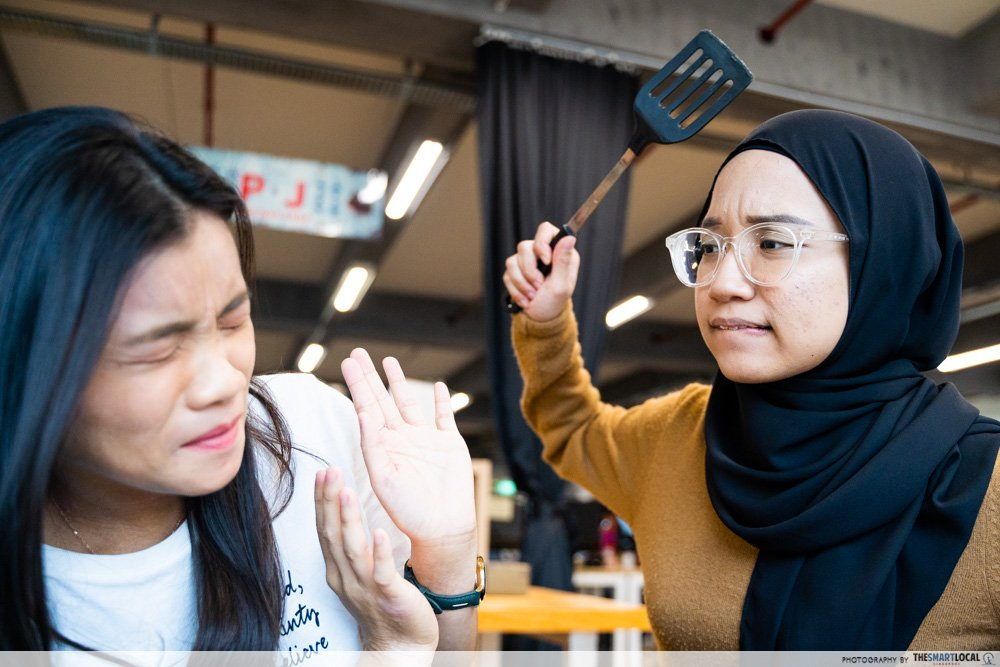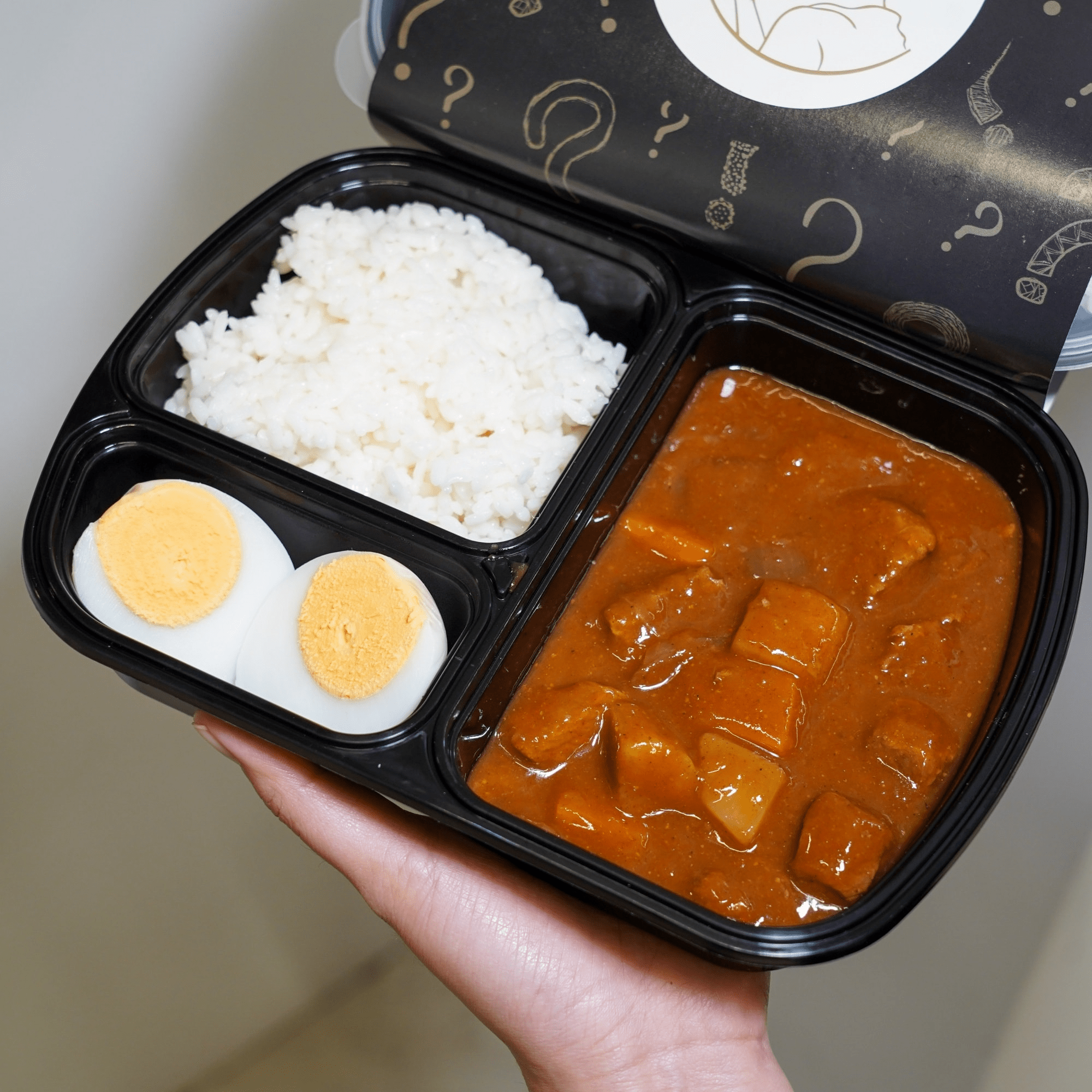Guide to Thai slang
For anyone trying to learn Thai, you may have noticed that it is one hilariously specific language, with idioms appropriate for almost all situations.
Hence, here we are with a list of Thai slang terms and expressions that will not only spice up your vocabulary and help you to better communicate with locals, but are also guaranteed to help you understand Thai culture a little better.
You can even check out our ongoing video series on Thai slang here for even trendier terms. If you’re looking for a spicier version, here is our swears version of this guide.
– Common Thai idioms and expressions –
Before you go through, it’s important to note that the majority of the terms below are Thai slang and therefore should not be used outside of your immediate circle of peers.
We’re starting off with the classic – those that have been with us since MSN Messenger was the thing.
1. 555 – How Thais laugh out loud
This is basically the Thai version of “lol”. Because five in Thai (ha) sounds exactly like the sound you’d make when you laugh, typing a bunch of 5s is how we laugh through text. The funnier something is, the more fives we’ll type.
Tips: go from “55” or “lol”, to “555” or “hahaha”, to “55555” and more for bigger laughs if you’re not sure where to start.

Used in a sentence:
Girl 1: I just got caught taking a picture of a hot guy on the train. SEND HELP.
Girl 2: Lol, how?
Girl 1: My flash was on…
Girl 2: 55555 poor you.
2. Fin (ฟิน) – say this when something’s euphoric
Almost a decade ago, Thais started saying “fin” to describe any and all things that “hit the spot” or are “beyond satisfactory”. The term is thought to have derived from the word “finished”, “endorphine” and “finale”.

Fin is typically used at the end of a sentence, with a mak (มาก) to emphasise that it is very fin. For example, noodle fin mak which translates to “these noodles really hit the spot”. At other times, it’s used to describe a blissful moment.
Used in a sentence:
A: Hey, guess what!
B: What?
A: I just got to talk to my crush, fin mak.
3. Sathu (สาธุ) – the Thai “amen”
Put simply, sathu is the Buddhist equivalent of “amen”. Thais use a single “sathu” when receiving well-wishes or compliments, as if to manifest the kind words into existence.

Image credit: Sista Cafe
It is sometimes followed by a wai gesture, which is the pressing of both palms while bowing your head a little to create a prayer-like movement, before using your hands to “work” in the magic on your head and neck.
Used in a sentence:
A: I hope you get that job you’ve been wanting!
B: Saaathu!
4. Zaab (แซ่บ) – Delicious, spicy, or even spicy

Zaab is originally a term from the Isaan region that simply means delicious. But because a lot of Isaan cuisine tends to be pretty spicy, when the term made it to Bangkok, it was used to describe when things are spicy too.
And it doesn’t just stop at food. If someone is particularly hot and spicy, we’ll call them zaab mak too.
Alternative spelling: zap or zaap
Example of zaab as “delicious” or “spicy”:
A: How does this papaya salad taste?
B: Zaab lai! (Very delicious or spicy!)
Example of zaab as “hot” and/or “sexy”:
Girl 1: Hey, how do I look in this outfit?
Girl 2: Zaab mak ka! (Girl, you look hot!)

Another example of a girl looking bomb and a comment saying “you’re looking zap in short hair”.
Image credit: @thanyarita via Instagram
5. Kam kam (ขำๆ) – Just kidding!
Kam kam literally means “funny” or “hilarious”, but is often used to mean “just for fun” or “just for laughs”. For example, uploading a funny picture of you and your friends, or even entering a competition just for fun.

Used in a sentence:
A: Hey, there’s a badminton competition next week. You up?
B: Meh, I don’t think so. I’m not that good.
A: Come on, kam kam. Don’t need to win.
B: Fine, let’s just do it for fun!
6. Lamyai (ลำไย) – Annoying!
Try googling lamyai in Thai and you’ll see a page full of longan fruit, as that is its dictionary definition. Very similar to the term lamkarn which means “annoyed”, Thais use lamyai to express annoyance, dislike or frustration; you can even call someone a lamyai if they happen to be annoying you, specifically when they’re being a slowpoke. However, the word can also be used in a lighthearted way.

Used in a sentence:
Girl 1: *Calls boyfriend to ask how he is doing*
Girl 2: Oh, you and your boyfriend are so sweet, like all the time. Lamyai!
– Thai Gen-Z slang –
This generation seems to have created a whole new set of terms that capture their values. Here are a couple of new expressions used among Thai teens and younger adults that make communication more creative than it has ever been.
7. Ai tao (ไอ้ต้าว) – what a cutie
Ai tao is a recent slang that came into being a few years ago. Deriving from the word ai jao (ไอ้เจ้่า) or “you” in English, it is used to lead a sentence that expresses adoration, or to add softness and cuteness to the noun or adjective that usually comes after.
Two common examples are ai tao auan (ไอ้ต้าวอ้วน) and ai tao khwam rak (ไอ้ต้าวความรัก), which translates to “fatty” and “love” in a gentle, loving way.
Although you can use it with anything that you find cute, like chubby animals, the best person to use this with is no one other than your bae who deserves that extra affection.
Used in a sentence:

A: *Sees a cute cat* Ai taooo.
Pro-tip: We Thais like to drag the last consonant of a word out.
8. “Tip” or “noun + tip” – In your dreams
The word “tip” itself means “divine”, but to Thai netizens, tip is used to mean “an imaginary of something” or “to imagine something up”. An example would be fan tip (แฟนทิพย์) which translates to “imaginary boyfriend/girlfriend”; it could be referring to a person you like and want as your boyfriend, but it could be an imagined boyfriend who doesn’t exist as well.

Rich tip – saying you’re rich even when it’s only in your imagination.
Another example would be tiew tip (เที่ยวทิพย์), which means “imaginary trip”, saying you’re on vacation even though you really aren’t.
Used in a sentence:
A: Hi, I just want to tell you that Jungkook is my new boyfriend.
B: Jungkook from BTS?
A: Yes.
B: Lol. I think you mean boyfriend tip.
9. Gaeng or don gaeng (แกง, โดนแกง) – You got played

Image credit: วันนี้กินไรดีวะ via Facebook
Recently, gaeng became widely used among Thai teens and young adults to mean “got played”.
It originates from the term tom toon (ต้มตุ๋น), which also means tricking or fooling. The two words literally translate to “boil” (tom, ต้ม) and “stew” (toon, ตุ๋น), hence why the word is replaced with gaengmeaning “curry” in English; seeing that curry is made that way – boiled and stewed.
In short, gaeng is just the hip version of tom toon.
Grammatical tip: Gaeng is used as a verb whereas “don gaeng” is its passive form.
Used in a sentence:
A: *Rushes into the office at 9AM*
B: Hey, what are you doing here so early?
A: What? I thought the meeting was at 9AM. C told me that.
A: Lol. You just don geang, man.
10. Pang or sud pang (ปัง, สุดปัง) – explosively good
“Sud pang” is a more recent version of “pang”, which is a Thai onomatopoeia of explosive fireworks.
In social contexts, however, it is used to describe anything as “excellent”, “majestic”, “stunning”, or “the bomb”. Sud pang has become popular ever since it was featured in a song by a famous Thai female rapper called MILLI released just last year in August.

An IG post of a dance video teaser.
Image credit: @beamhoneyb
Translation:
Comment 1: “Very pang sister”.
Comment 2: “God, so pang, looking forward to the video”.
Used in a sentence:
A: Have you seen the latest dance video by Lisa, BLACKPINK?
B: Yeah! It was so pang!
11. Poh, Poh Taek (โป๊ะ, โป๊ะแตก) – cat’s out of the bag
A poh is a type of fishing trap. But most Thais will actually use it to mean that the cat’s out of the bag, or to get your secret revealed.

Image credit: ปลาทูซาเตี๊ยะ via Facebook
The surprisingly logical reason behind why we use poh to mean that our secret is out is because when your fishing trap breaks, i.e. poh taek (literally meaning the poh breaks), all your fish spills out into the water uncontrollably – much like your juicy secrets into your circle of wild, gossip-loving friends.
Over time, we’ve shortened it to just poh. So now when your friends have revealed their hand, say poh to them.
It’s also just incredibly fun to say.
Used in a sentence:
A: Oh no, my boyfriend heard me talking to you guys yesterday.
B: So he finally knows that you’re not as prim and proper as you make yourself out to be?
A: Yeah.
B: Poh.
12. Natasha (นาตาชา) – nosy, snoop

Image credit: thewellesleynews.com
Fans of the Marvel Cinematic Universe should pick this up even without knowledge of Thai language.
When we call someone Natasha, either it’s their actual name or we’re calling them a nosy snoop.
The origin for this is quite simple: the popular character Black Widow from the MCU is also known as Natasha Romanoff. So now anyone deemed a spy is called Natasha in honour of the famous character.
Used in a sentence:
Be careful of anything you say in this chat, there’s a Natasha amongst us.
Level up with these Thai slang terms
While there are several other expressions and Thai slang for you to learn about, it is safe to say that you’re no longer at the tip of the iceberg but deep down in the water getting closer to Kwarm Pen Thai or what it’s like to be Thai. Let us know how
For more on Thai culture, check out this list of things Thais do that are quintessentially Thai or Thai tricks to success in romance. If you need slang that’ll help you with wooing a local, this list of Thai dating slang might help.
Cover image adapted from: ปลาทูซาเตี๊ยะ via Facebook, Sista Cafe
Article originally published by Nune Praewalin in 16 April 2021. Last updated by buranond in 11 March 2024.

Drop us your email so you won't miss the latest news.






